Uganda has one of the youngest populations in Africa, with youth in Northern Uganda bearing a particularly large burden of unemployment, gender-based violence, poverty and food insecurity. Heifer Uganda’s Learn For Agribusiness (L4AB) project partnered with young people to tackle these issues, strategically using agriculture to catalyze opportunity and increase incomes.
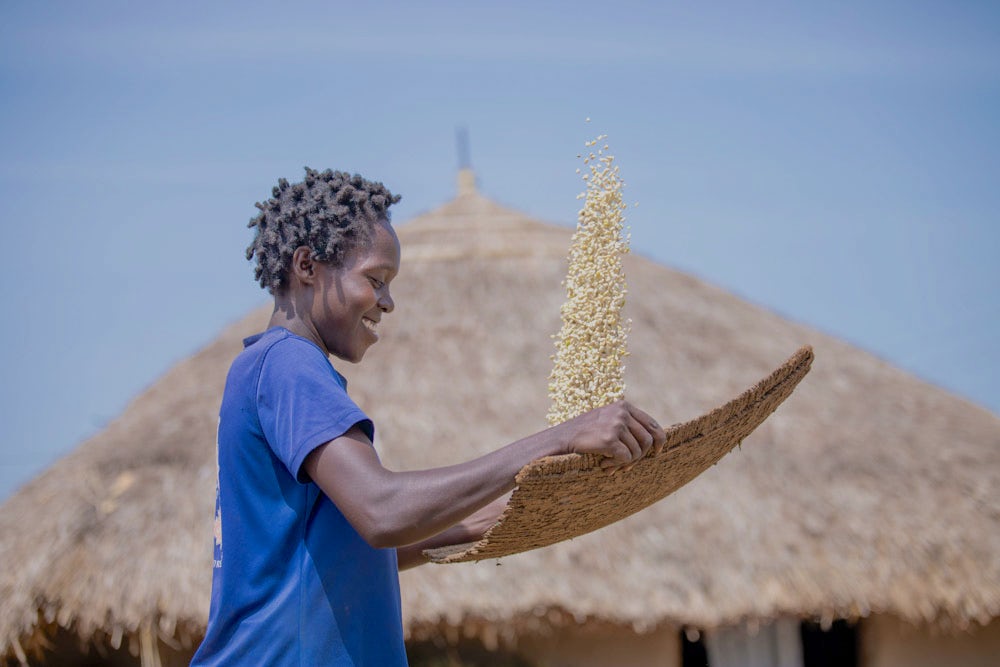
The fragile conditions in Northern Uganda are rooted, in part, in decades of past crises from which many regions are still recovering. An HIV/AIDS epidemic ravaged the entire country in the 1980s and ‘90s, and Northern Uganda suffered the scourges of a prolonged war between the government of Uganda and the Lord's Resistance Army between 1988 and 2006.
Local communities and social and economic structures were severely damaged by both the war and the epidemic, resulting in a high incidence of severe poverty as well as many youth-led households in rural areas. Many of the young people who survived were either formerly displaced or abducted youth, former child soldiers or persons living with AIDS, who were left to cope without education, employment or development opportunities.
Today, most of the population of Northern Uganda’s Dokolo District — 90 percent — survives by low-income subsistence farming, grappling with environmental challenges, crop and livestock diseases, inadequate infrastructure and poor techniques to produce sufficient food and carve out a living.
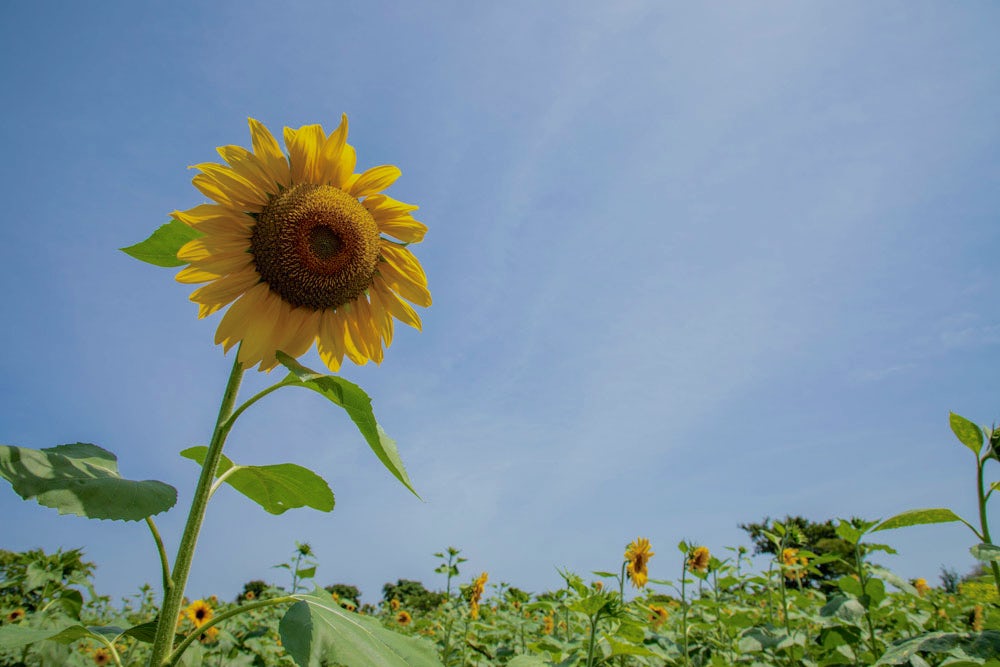
It is for this reason that Heifer Uganda partnered with Edukans, Heifer Netherlands, Dokolo District local government and the private sector to prioritize young people in Northern Uganda through L4AB and inspire them to consider agribusiness as an opportunity.
The project aimed to enable 3,200 uneducated youth aged 18-30 years — indirectly supporting 7,200 of their children and dependents — to earn decent incomes by investing in and growing oilseeds, including sunflower, groundnuts and soybeans.
Oilseeds are seeds harvested from plants like sunflowers, specifically grown to extract edible oils. These seeds offer substantial economic benefits to smallholder farmers in Uganda by serving as a primary ingredient in both edible oils and livestock feed. Their high demand also positions them as a lucrative cash crop for local producers.
The L4AB project addressed skills development, access to finance and market access to enable youth to tap into the promise of oilseed production, addressing systemic bottlenecks in the value chain to bring about sustainable and lasting impact.
The youth farmers were originally organized into 133 self-help groups and later formed two formal producer organizations, the Dokolo Young Oilseeds Farmers’ Cooperative and Kwera Youth Oilseed Farmers’ Multipurpose Cooperative Society Limited, creating a foundation for the youth to work together and access business support and services.
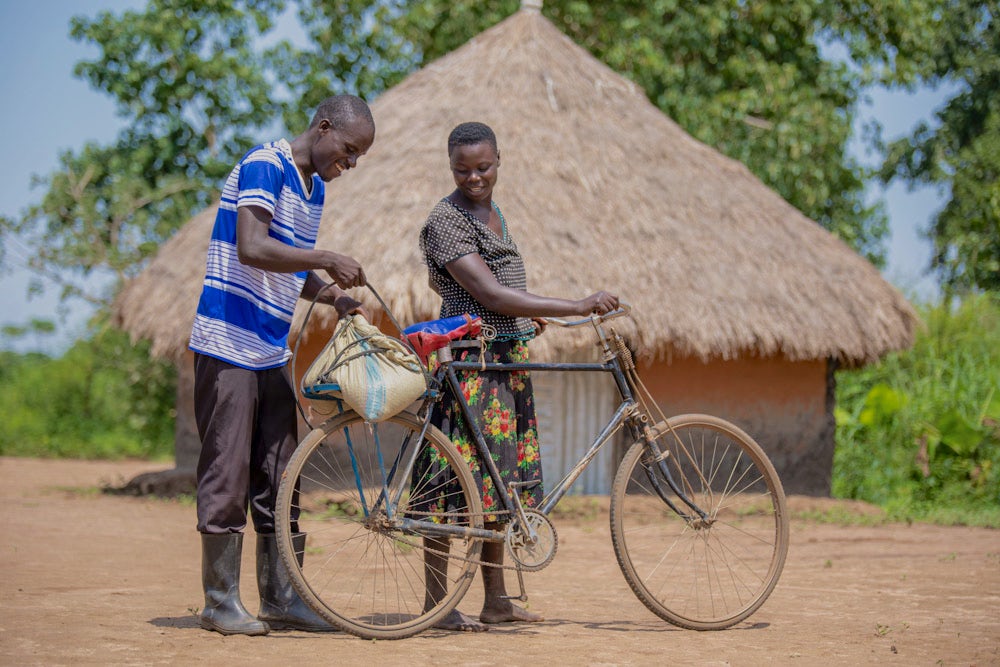
L4AB leveraged government programs under the Ministry of Agriculture, Animal Industries and Fisheries to establish a 400-ton capacity storage, bulking and processing facility for the Dokolo cooperative; linked the co-ops’ to agriculture insurance providers to build their resilience to climate change; supplied drought resilient oilseeds and provided tractors to increase production and productivity.
The project also supported the cooperatives to establish market linkages and facilitate business partnerships with domestic offtakers — companies that buy products from farmers — such as Tropical Dynasty Limited, Ngetta Tropical Holdings, Mukwano Industries Uganda Limited, Soybean Africa Limited and TRAFORD.
Every season, the youth-led cooperatives supply 4-8 tons of certified seed to their members to plant and, after the growing period, collect a combined total of 190 tons of harvested oilseed to be sold in the commercial market. The groups now have a cumulative membership of 3,792 to whom they continue to offer a range of business development services, including local seed production, extension services, crop insurance and tractor leasing.
According to Heifer Uganda Country Director William Matovu, the major objective of the L4AB project was to create employment opportunities for young people in Dokolo District to earn sustainable incomes so as to live a dignified life.
“This income is vital for the households to afford year-round food sufficiency and nutrition,” he said.
The reliable livelihoods created through L4AB have been pivotal for supporting Dokolo’s large youth population to overcome longstanding challenges. The project has also helped them build resilience against new shocks in the food sector that have recently inflamed food insecurity across the region.
Ambrose Omongi, 28, is living a better life since attaining membership in the Kwera Youth Oilseed Farmers’ Cooperative through L4AB. Before the project started, he notes he used to earn very little. But, today, he is thriving and, as a result, he is able to put food on the table for his family.
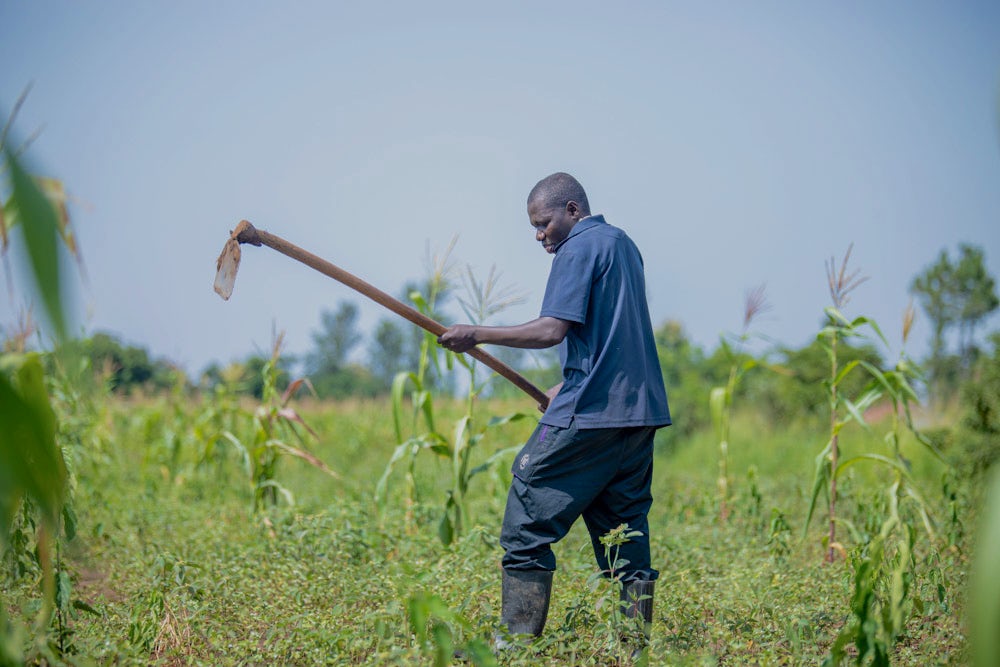
“I received 5 kilos of sunflower seeds each valued at 60,000 Ugandan shillings (about $16) per kilo, which I planted,” he said, explaining the seeds distributed to him by the cooperative on loan. “[Then] I sold my sunflower produce to the cooperative.”
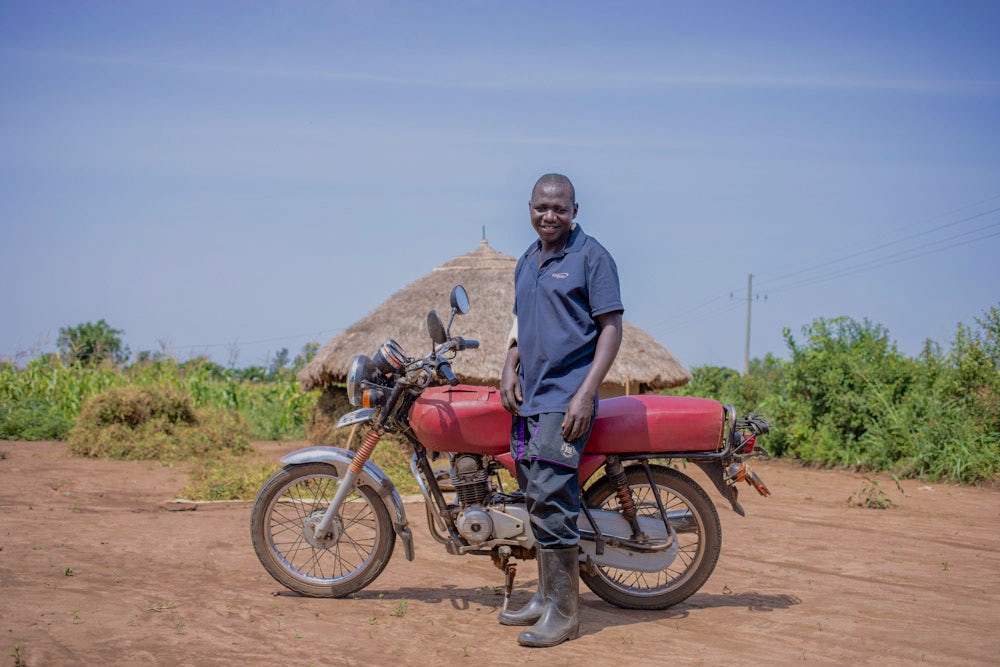
Through the purchasing process, the cooperative recovered the value of the seed loan and Ambrose earned 2.4 million Ugandan shillings, about $635.
“I topped up on the money I earned from the sale to purchase a motorcycle which I ride commercially as a boda-boda,” he said, referring to his motorcycle taxi. “I was able to purchase a plot of land too. I use the plot to plant maize for food and for sale.”
Like Ambrose, many youth who were vulnerable and did not have access to a daily income were finally able to become breadwinners for their families, thanks to this project.
Evaline Auma, a 24-year-old mother of two is another farmer who says they would go hungry before L4AB took footing in Dokolo, as they had no money to buy food and pay for medical care for the children when sick.
“But today, we have food because we’ve been able to plant for home consumption — sweet potatoes, simsim, cassava, sorghum,” she confirmed. “We do not have to buy food from the market.”
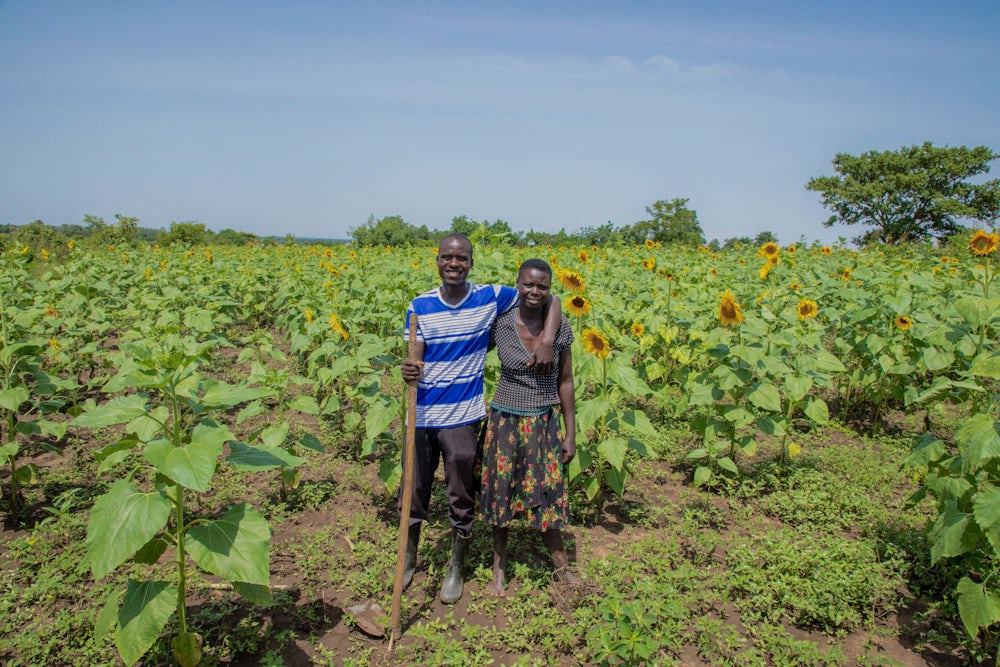
As members of Kwera cooperative, she and her husband, Innocent, have a market for their sunflower production and, thanks to increased earnings, have been able to buy new clothes, a bigger bed, utensils and a new mattress, in addition to growing their home garden.
Evaline also rears chicken and is happy they sometimes enjoy the birds and their eggs as food, a sign of improved diet.
“The project has been helpful,” said Innocent.
Heifer Uganda aims to support 400,000 farming families to achieve a living income — the amount of money required for a dignified life — by 2030. We mobilize smallholder farmers and support them to self-organize and envision their future, partnering with them to strategically address local demand in selected agricultural value chains that include swine, dairy, beef, poultry, horticulture and oilseeds to enhance competitiveness, earn a decent living and reach food self-sufficiency.
In support of this objective, Learn 4 Agribusiness was a partnership with Edukans, the Agriculture Cluster Development Project (ACDP), Dokolo District Local Government and private sector companies including Tropical Dynasty Limited, Ngetta Tropical Holdings, Mukwano Industries Uganda Limited, Soybean Africa Limited and TRAFORD.
The project was implemented from 2018 to 2021 and registered commendable achievement by surpassing a number of key performance indicators, mobilizing 133 youth self-help groups of which 128 were planned, training 3,792 youths of which 3,200 were planned, and developing six partnerships of which five were planned, respectively.